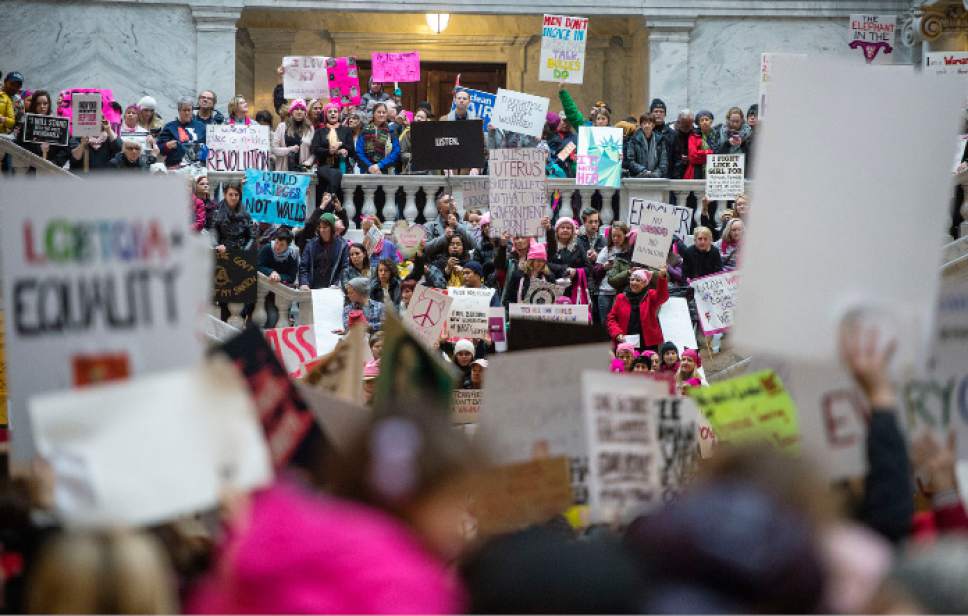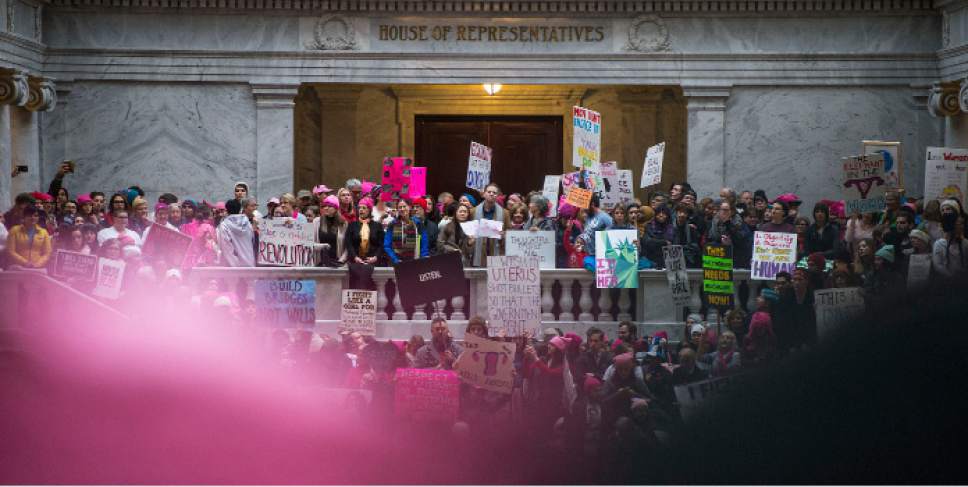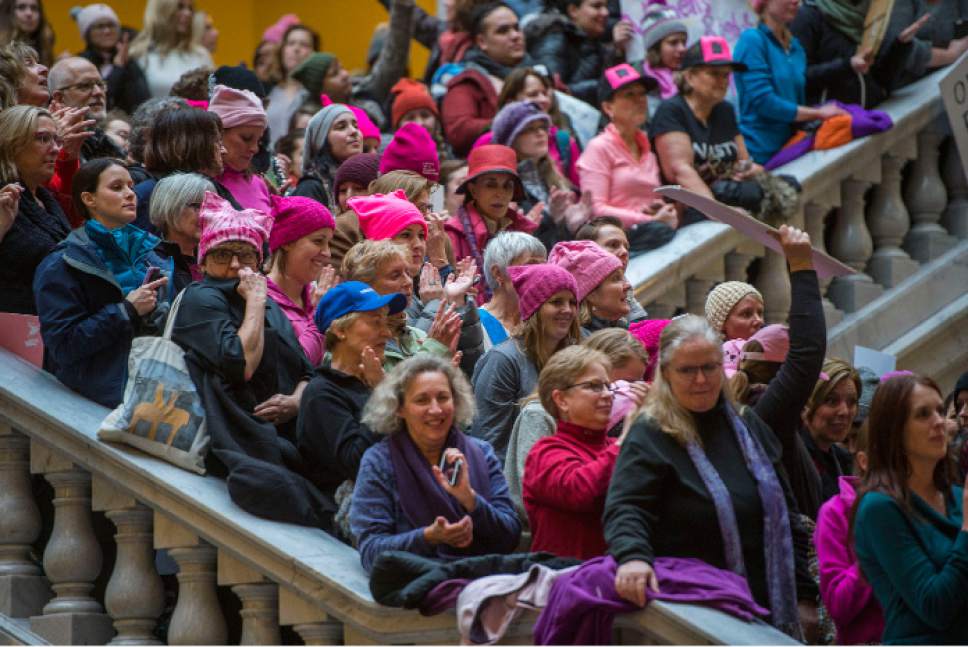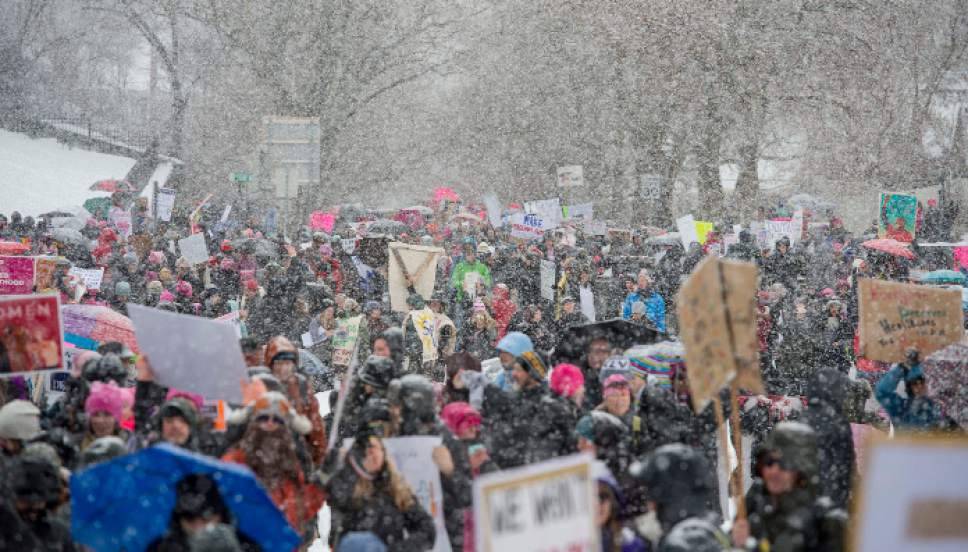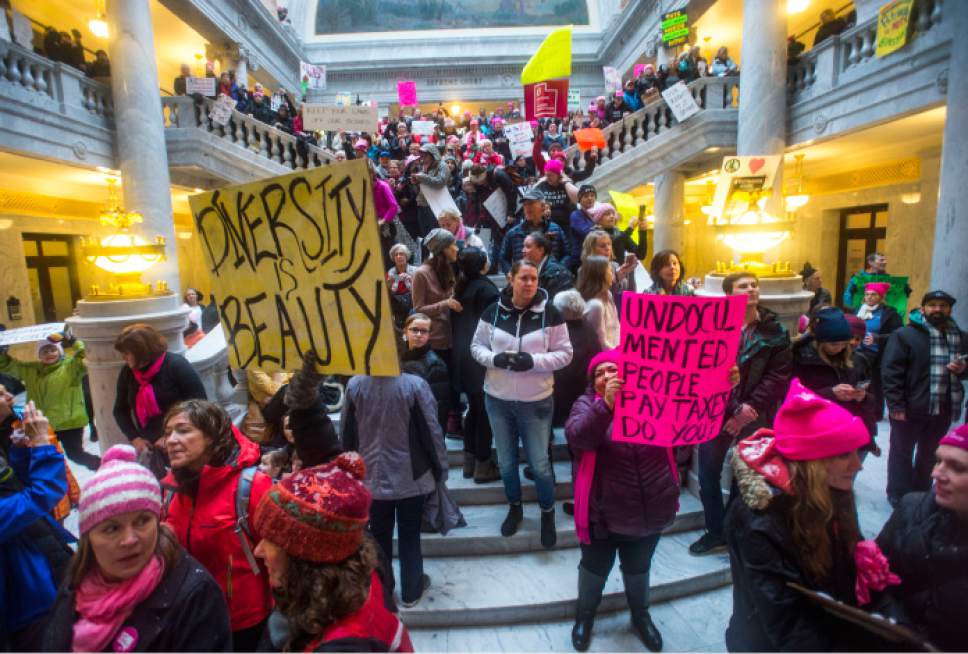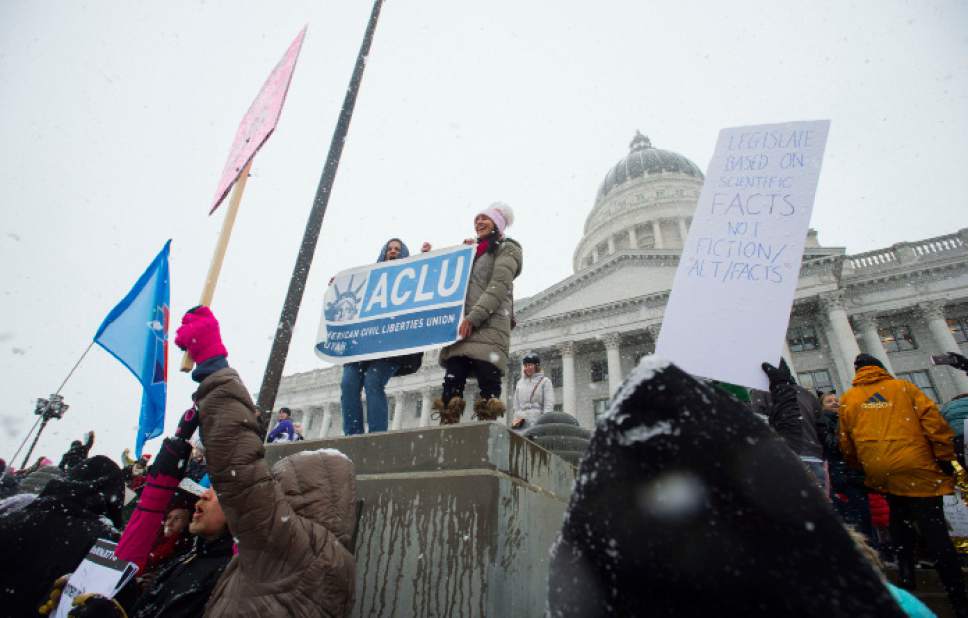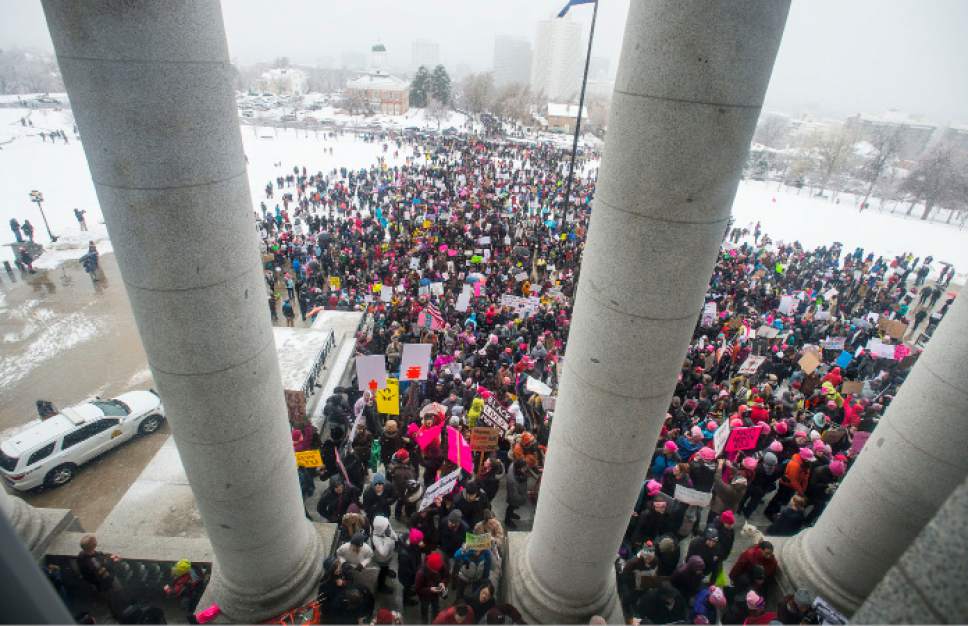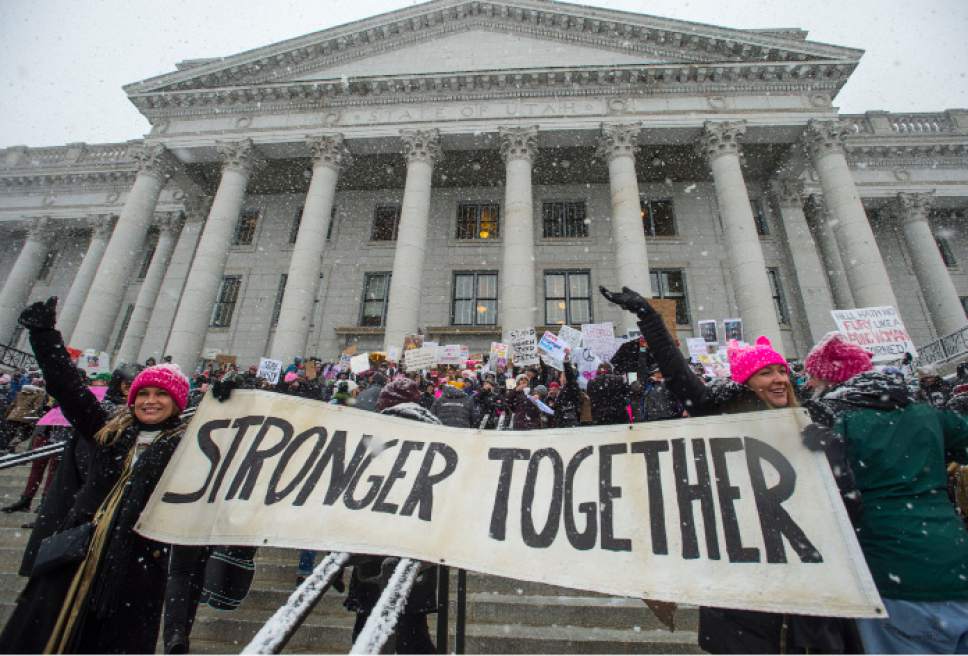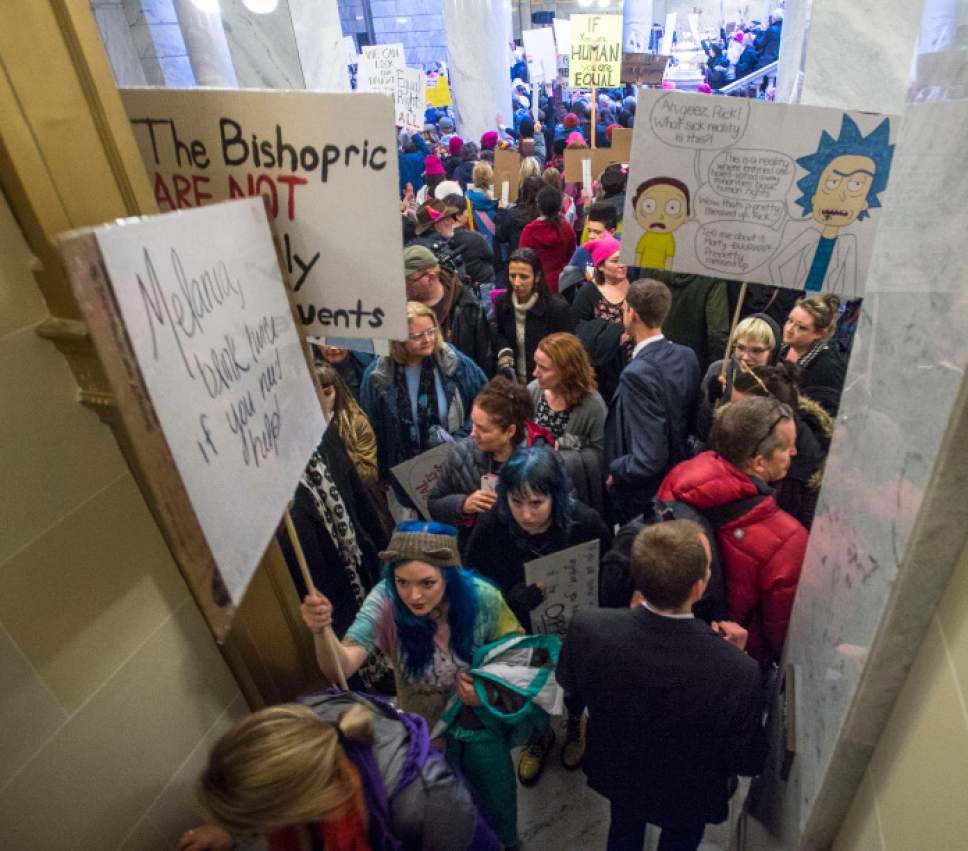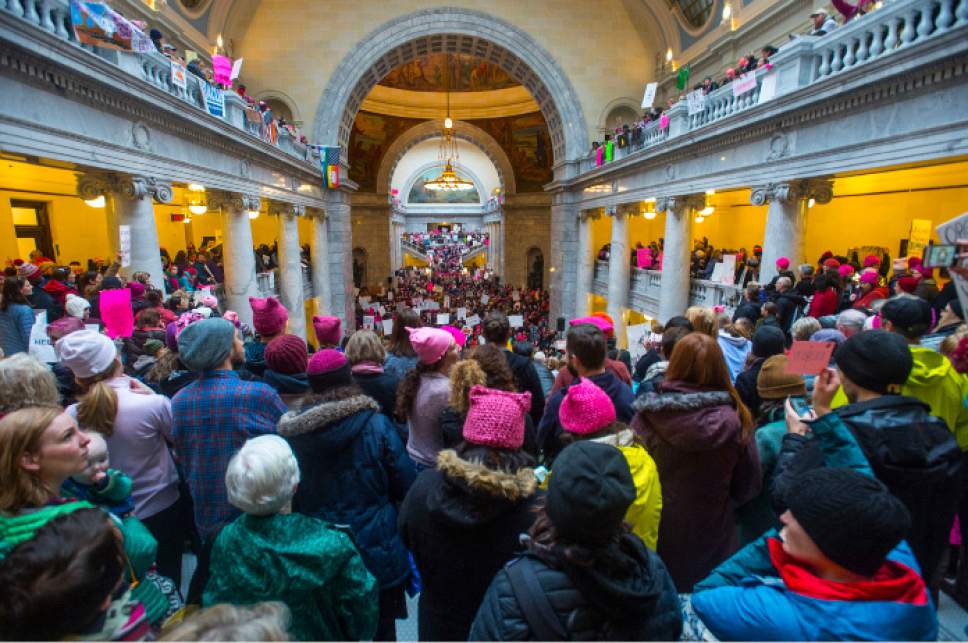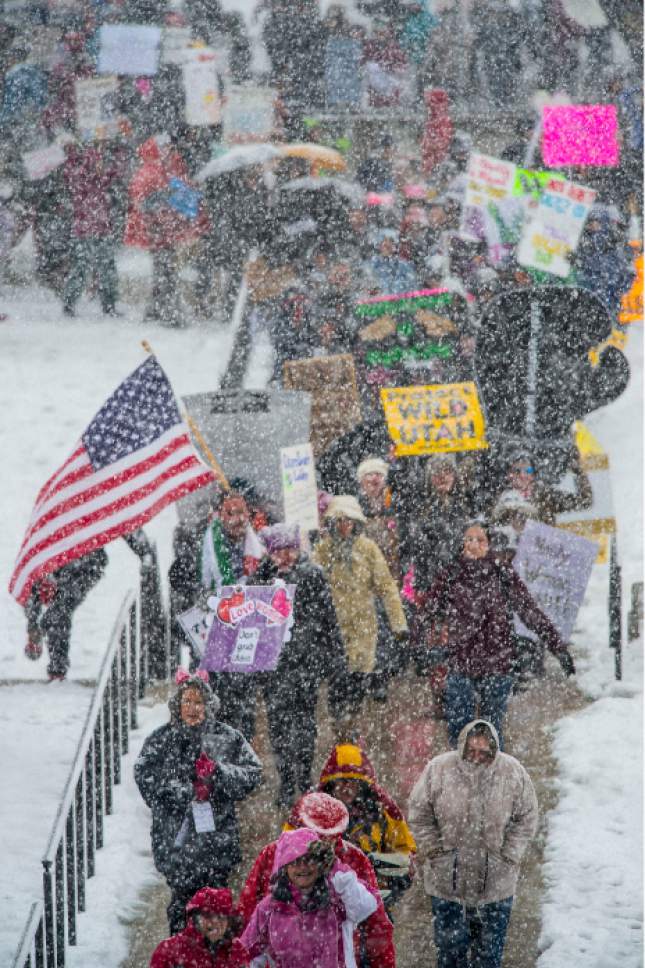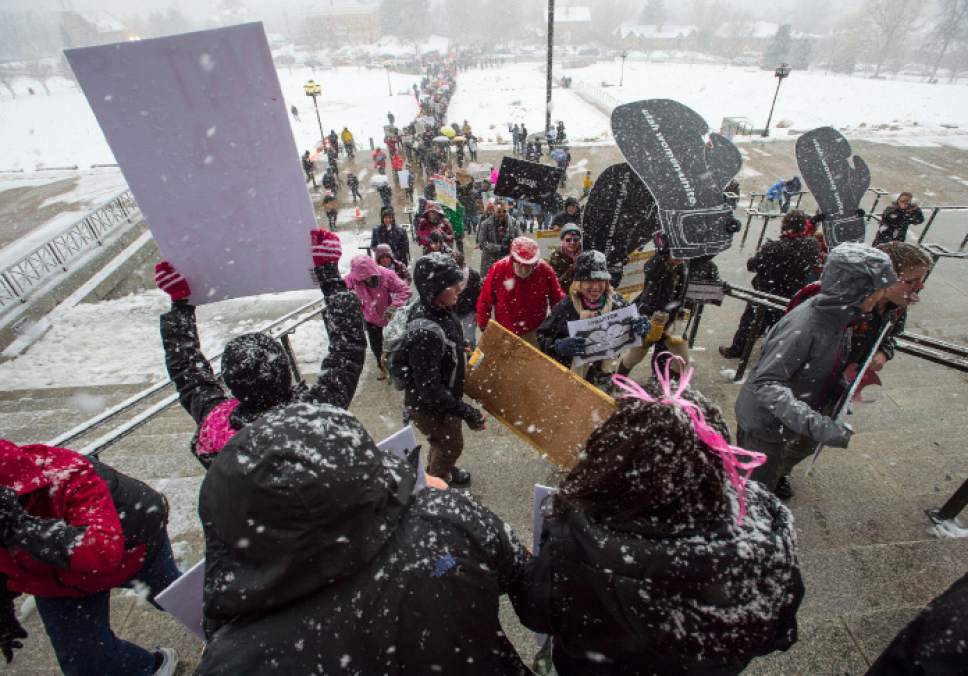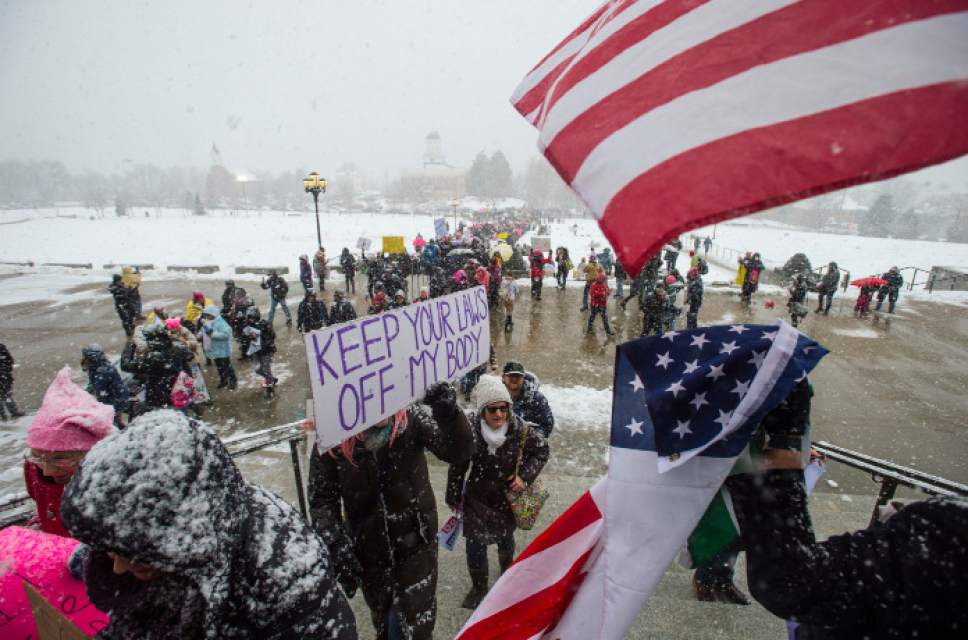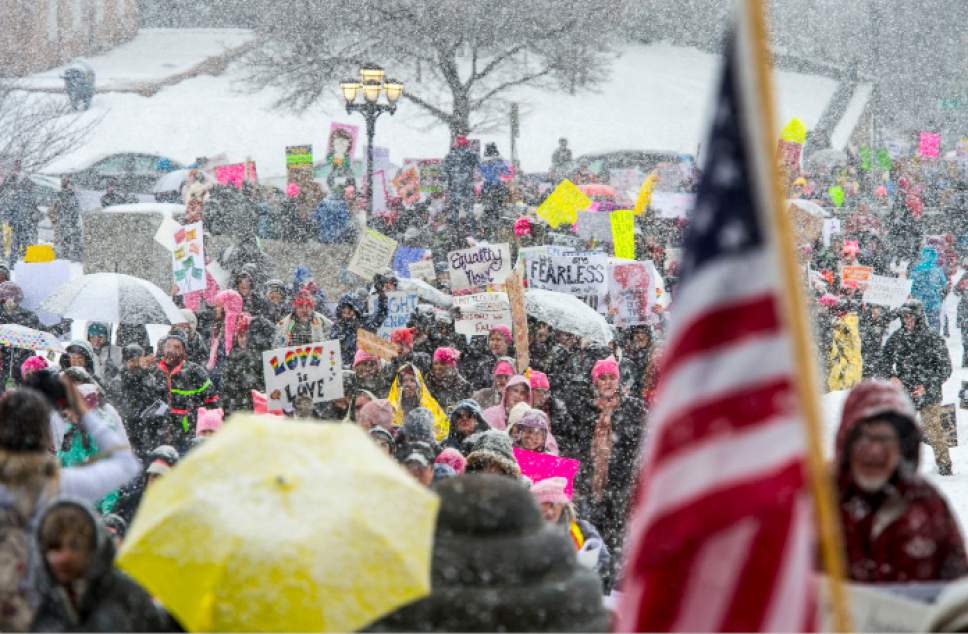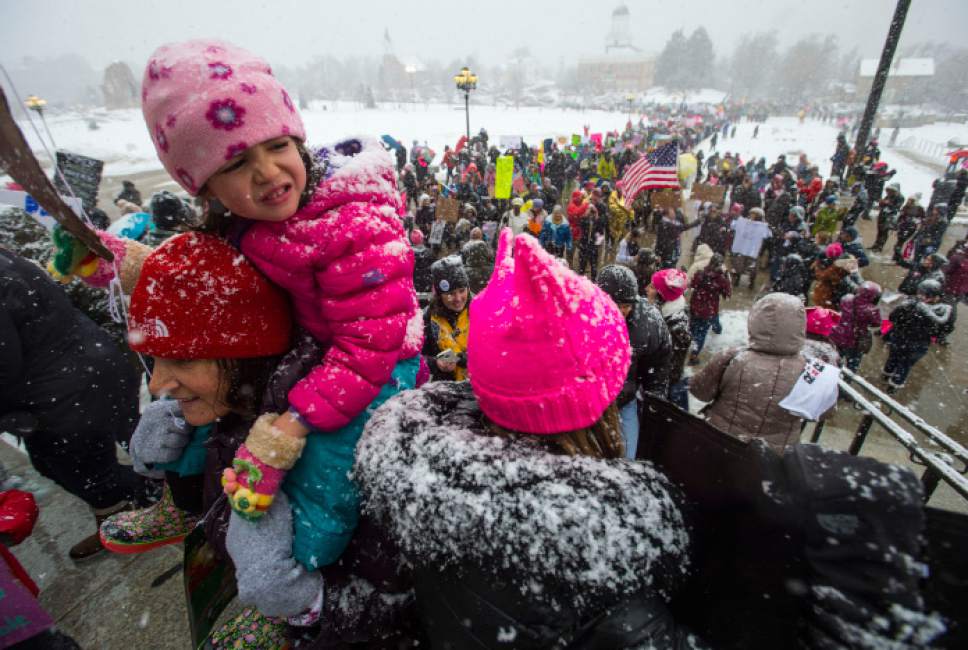This is an archived article that was published on sltrib.com in 2017, and information in the article may be outdated. It is provided only for personal research purposes and may not be reprinted.
Thousands of Utahns filled the Capitol on Monday in a demonstration calling for equal rights for women, racial and religious minorities, and the LGBT community.
The Utah Women's March on the State Capitol followed a weekend of similar marches throughout the country in response to the inauguration of President Donald Trump.
Monday's event also coincided with the first day of business for Utah's part-time Legislature, with protesters frequently criticizing a perceived lack of representation by the majority-male membership of Utah's legislative chambers.
"We will come together even if those men don't want us to," said Noor Ul-Hassan, spokeswoman for the group Utah Women Unite, which organized Monday's march. "When you think we don't have a voice, remember that we raised our voices here."
Marchers met at City Creek Park before walking north on State Street to the Capitol complex. They chanted "We won't go away, welcome to your first day" and carried signs advocating for gender equality, sexual-assault prevention, environmental conservation and legal protections for lesbian, gay, bisexual and transgender individuals.
"With Trump being inaugurated, there's a lot of fear for women's rights, immigrant rights, LGBTQ, Muslims," said Megan Stevens. "We're afraid that our voices aren't going to be heard and our rights will be given away."
The event was one of the largest Capitol demonstrations in recent memory, with more than 6,000 participants inside the building's Rotunda and upper-level balconies, according to the Utah Highway Patrol, and overflow crowds outside due to a lack of space.
UHP Capt. Barton Blair said participants were mostly well-behaved, with only two or three individuals asked to leave due to minor incidents.
"Of the [rallies] I can remember," Blair said, "this is easily the biggest."
Susan Finlayson, a program director for Wasatch Community Gardens, said the past year and a half had been a wake-up call for woman and all Americans on the issues of sexism and misogyny.
"That's why we're here, trying to fight for women's rights and lives," she said. "I think this is a very important event in terms of bringing people together at this moment to assert that we are not going to go backwards, that we are going to fight for our rights."
Salt Lake City resident and India native Arati Sinha said she is concerned about Trump's rhetoric toward women and minority groups.
"The way he talks is so degrading. I hope he wakes up and sees us," she said. "Despite the fact that we are black, blue, white, whatever, we are Americans. Men and women, we all deserve a certain dignity that is lacking in this election."
During the rally in the Rotunda, event organizer Kate Kelly said she had recently returned from Saturday's women's march in Washington, D.C. She had not slept in four days and had caught a cold, she said, and was feeling sick and tired, both literally and figuratively.
"But you know what else I'm sick and tired of?" Kelly said. "I'm sick and tired of men making laws about our bodies and our choices and our lives without consulting us."
Several Utah lawmakers, all Democrats, participated in the rally. Salt Lake City Democrat Sen. Jim Dabakis said he plans to re-introduce the Equal Rights Amendment for passage in the state, and Rep. Angela Romero, D-Salt Lake City, pitched a bill mandating testing of all rape kits.
Romero also spoke in favor of efforts to minimize the pay disparity between Utah's working men and women.
"Women are in the workforce and we're not going anywhere," Romero said. "So we really need to fight for equal pay and equal work."
Rep. Patrice Arent, D-Millcreek, said civility and respect for all people are the moral cores of Utah and the United States. She spoke against Trump's positions on immigration, particularly statements that Muslims be prohibited from entering the country and tracked through a registry.
"None of us will support a Muslim registry and if there is one, as a Jewish-American, I will be there to register," Arent said.
Noise from the demonstration interrupted legislative business, with lawmakers encouraged to speak directly into their microphones in order for debate to be heard over the commotion outside their chamber doors.
Senate President Wayne Niederhauser, R-Sandy, said Monday that free speech and free assembly are central American ideals. He said state lawmakers have little authority over the actions of the Trump administration, but commended Utahns for being involved in activism.
"We applaud those that want their voice to be heard," Niederhauser said.
This year's commemorative Utah Senate coin features the image of Martha Hughes Cannon, who in 1896 was elected to the Utah Senate and became the first woman in the United States to hold the office of state senator.
Niederhauser said the coin is part of an effort to highlight Utah's history as the first state or U.S. territory to grant women the right to vote, and its position as a national leader in the suffrage movement.
"I think that we've been very progressive as a state in acknowledging women and their rights and their ability to govern and be a part of the process," Niederhauser said.
But rally organizers and marchers described a different legacy of gender representation in the state.
Ul-Hassan said Utah Women Unite plan to be present during every day of the 2017 legislative session and will track bills related to women's rights and discrimination.
She encouraged protesters to contact their elected representatives weekly, and to find time to visit lawmakers on Capitol Hill.
"A couple of years from now they're going to need our votes," Ul-Hassan said. "Make sure you let them know that."
—Reporters Brennan Smith, Robert Gehrke and Jessica Banuelos contributed to this story.
Twitter: @bjaminwood


